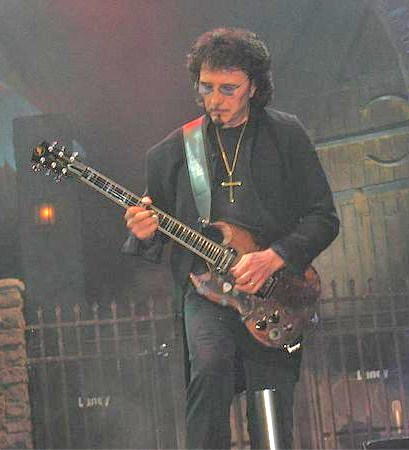|
Sick Mother Fakers
Sick Mother Fakers (''Fakers'' being transliteration for ''Fuckers''), also known as SMF for short, is a Serbian hardcore punk/crossover thrash band from Belgrade. History 1980s The band was formed in 1989 as a side project of musicians, who beside playing with their own bands, wanted to create a one-off band which would perform at a festival held at Belgrade's Studentski kulturni centar (Belgrade), SKC. Influenced by Stormtroopers of Death, Charged GBH and Suicidal Tendencies, they wanted to create a Hardcore punk, hardcore band with simple, humorous and sarcastic lyrics written by themselves. The first lineup consisted of former Brainstorm and Overdose guitarist Zoran "Đura "Đuroski, former Karizma (Serbian band), Karizma and Amnesia bass guitarist Dejan "Francuz" Lukić who played the drums, former Genocid, Heller and Brainstorm guitarist Dare who played bass guitar, and Amnesia and Kerozin guitarist Kokan who did the vocals. The set list, performed at the festival, cons ... [...More Info...] [...Related Items...] OR: [Wikipedia] [Google] [Baidu] |
Soulfly
Soulfly is an American heavy metal band formed in Los Angeles, California, in 1997, and later based out of Phoenix, Arizona. Soulfly is led by former Sepultura frontman Max Cavalera, who formed the band after he left the Brazilian group in 1996. To date the band has released twelve studio albums, one tour EP, twenty-three singles, one video album, and twelve music videos. Their debut album, ''Soulfly'', was released on April 21, 1998, while their most recent album, ''Totem'', was released on August 5, 2022 Soulfly incorporates many styles of metal with Brazilian tribal and world music, much like Cavalera's previous band Sepultura. The original lyrical content revolved around spirituality, political and religious themes, with later albums encompassing other themes including war, violence, aggression, slavery, hatred and anger. All of their first six studio albums debuted on the United States ''Billboard'' 200, with a peak position at number 32 for their second album, '' Primi ... [...More Info...] [...Related Items...] OR: [Wikipedia] [Google] [Baidu] |
Suicidal Tendencies
Suicidal Tendencies is an American crossover thrash band formed in 1980 in Venice in Los Angeles, California by vocalist Mike Muir. Muir is the only remaining original member of the band. Along with D.R.I., Corrosion of Conformity, and Stormtroopers of Death, the band is often credited as one of "the fathers of crossover thrash". Their current lineup includes Muir, guitarists Dean Pleasants and Ben Weinman, bassist Ra Díaz and drummer Dave Lombardo. Notable musicians who have contributed to the band's studio or live activities include guitarists Rocky George and Mike Clark, bassists Louiche Mayorga, Robert Trujillo, Josh Paul and Stephen "Thundercat" Bruner, and drummers Amery Smith, Jimmy DeGrasso, Brooks Wackerman, David Hidalgo Jr., Thomas Pridgen and session musician Josh Freese. Suicidal Tendencies have released fourteen studio albums (four of which are composed of re-recorded or previously released material), two EPs, four split albums, four compilation albums, and ... [...More Info...] [...Related Items...] OR: [Wikipedia] [Google] [Baidu] |
Mrtva Priroda
''Mrtva priroda'' (trans. '' Still Life'') is the third studio album from Serbian and former Yugoslav rock band Riblja Čorba, released in 1981. In 1998, the album was polled as the 19th on the list of 100 greatest Yugoslav rock and pop albums in the book '' YU 100: najbolji albumi jugoslovenske rok i pop muzike'' (''YU 100: The Best albums of Yugoslav pop and rock music''). In 2015, the album was pronounced the 22nd on the list of 100 greatest Yugoslav albums published by Croatian edition of ''Rolling Stone''. Background and recording For the first time, a Riblja Čorba album featured a song written entirely by the guitarist Momčilo Bajagić, "Ja sam se ložio na tebe". Nevertheless, Riblja Čorba frontman Bora Đorđević remained the band's main author, with six songs written by him. The album was produced by John McCoy. In his 2011 book, ''Šta je pesnik hteo da kaže'', Đorđević recalls how the band decided to hire McCoy: Đorđević also states that the band was o ... [...More Info...] [...Related Items...] OR: [Wikipedia] [Google] [Baidu] |
Riblja Čorba
Riblja Čorba ( sr-Cyrl, Рибља Чорба, pronounced ; translation: lit. ''Fish Stew'') is a Serbian and former Yugoslav rock band formed in Belgrade in 1978. The band was one of the most popular and most influential acts of the Yugoslav rock scene. Riblja Čorba was formed in 1978 by vocalist Bora Đorđević, guitarist Rajko Kojić, bass guitarist Miša Aleksić and drummer Vicko Milatović. Their debut release, the single "Lutka sa naslovne strane" (1978), saw huge success and launched them to fame. They were soon joined by guitarist Momčilo Bajagić "Bajaga", the new lineup releasing the album ''Kost u grlu'' (1979), which was, largely due to Đorđević's social-related lyrics, a huge commercial and critical success. Their following releases, '' Pokvarena mašta i prljave strasti'' (1981), ''Mrtva priroda'' (1981) and '' Buvlja pijaca'' (1982) launched them to the top of the Yugoslav rock scene; Đorđević's provocative social- and political-related lyrics were pra ... [...More Info...] [...Related Items...] OR: [Wikipedia] [Google] [Baidu] |
Doom Metal
Doom metal is an extreme subgenre of heavy metal music that typically uses slower tempos, low-tuned guitars and a much "thicker" or "heavier" sound than other heavy metal genres.K. Kahn-Harris, ''Extreme Metal: Music and Culture on the Edge'' (Berg Publishers, 2007), , p. 31. Both the music and the lyrics are intended to evoke a sense of despair, dread, and impending doom. The genre is strongly influenced by the early work of Black Sabbath, who formed a prototype for doom metal. During the first half of the 1980s, a number of bands such as Witchfinder General and Pagan Altar from England, American bands Pentagram, Saint Vitus, the Obsessed, Trouble, and Cirith Ungol, and Swedish band Candlemass defined doom metal as a distinct genre. Characteristics Instrumentation The electric guitar, bass guitar, and drum kit are the most common instruments used to play doom metal (although keyboards are sometimes used), but its structures are rooted in the same scales as in blues. Guit ... [...More Info...] [...Related Items...] OR: [Wikipedia] [Google] [Baidu] |
Turbo-folk
Turbo-folk (sometimes referred as pop-folk or popular folk) is subgenre of contemporary pop music with its origins in Serbia, that initially developed during the 1980s and 1990s, with similar music styles in Bulgaria (chalga), Romania (manele) and Albania (tallava). It is a fusion genre of popular music, blending Serbian folk music with other genres: such as pop, rock, electronic and some hip-hop. Background and characteristics Turbo-folk music emerged as a subculture in the countryside during the 1970s before migrating to the city in the '80s and eventually reaching further expansion in the '90s during the rule of Slobodan Milošević, Yugoslav Wars, inflation and political isolation. The term was originally coined by Montenegrin musician Rambo Amadeus whilst jokingly referring to his own musical style. However, critics soon adopted this term which referred to a musical style blending folk music with elements of electronic music, Eurodance and hip-hop or other genres ... [...More Info...] [...Related Items...] OR: [Wikipedia] [Google] [Baidu] |
The Marathon Family
''The Marathon Family'' ( sr, Маратонци трче почасни круг / Maratonci trče počasni krug, lit. ''Marathon Runners Do a Lap of Honour'', or often simply ''Maratonci'', lit. ''The Marathon Runners'') is a 1982 Yugoslav black comedy film written by Dušan Kovačević and directed by Serbian director Slobodan Šijan. It has become a cult film in Serbia and other countries from the former Yugoslavia region and is regarded as one of the classics of Yugoslav Serbian cinematography. Plot The story takes place in an unnamed small Serbian town in 1935, and focuses on the Topalović family consisting of six generations of undertakers: * gravely ill Pantelija, * Maksimilijan who uses a wheelchair, is mute and nearly deaf, * rheumatic Aksentije, * sober-minded Milutin, * impulsive and narcissistic Laki, and * young and naive Mirko. Constantly bickering amongst each other, the latest family arguments arise from the youngest son, Mirko, not wanting to continue th ... [...More Info...] [...Related Items...] OR: [Wikipedia] [Google] [Baidu] |
Who's That Singing Over There
''Who's Singin' Over There?'' ( sh, Ko to tamo peva) is a 1980 Yugoslav film written by Dušan Kovačević and directed by Slobodan Šijan. It is a dark comedy and features an ensemble cast. The film tells a story about a group of passengers traveling by bus to Belgrade in 1941, during the last days of the Kingdom of Yugoslavia, just before the Axis occupation of Yugoslavia. The film was screened in the ''Un Certain Regard'' section at the 1981 Cannes Film Festival. In 1996, the Yugoslav Board of the Academy of Film Art and Science (AFUN) voted this movie the best Serbian movie made in the 1947–1995 period. Plot On Saturday, 5 April 1941, one day before the Axis invasion of the Kingdom of Yugoslavia, a colourful group of random passengers on a country road deep in the heart of Serbia board a dilapidated bus, headed for the capital Belgrade. The group includes two Gypsy musicians, a World War I veteran, a Germanophile, a budding singer, a sickly looking man, and a hunter with a ... [...More Info...] [...Related Items...] OR: [Wikipedia] [Google] [Baidu] |
Slobodan Šijan
Slobodan Šijan ( sr-Cyrl, Слободан Шијан, ; born November 16, 1946) is a Serbian film director. Biography Šijan was born in Belgrade, Yugoslavia. He graduated from the Fine Arts Academy in Belgrade, and then enrolled in Belgrade's Academy of Theater Faculty of Dramatic Arts in 1970. He directed a number of television films as well as experimental and short films during the 1970s. From 1976 to 1979, he published a series of fanzines which according to him were made "out of frustration" in between his experimentation and attempts to break into professional cinema. His first full-length feature ''Ko to tamo peva'', directed in collaboration with writer Dušan Kovačević and cinematographer Božidar Nikolić, was released in 1980 and became a box-office hit. 1982's ''Maratonci trče počasni krug'', also achieved considerable commercial success. Over the coming years Šijan directed two more notable films - '' Kako sam sistematski uništen od idiota'' and ''Davitelj ... [...More Info...] [...Related Items...] OR: [Wikipedia] [Google] [Baidu] |
Lako 05 , Albania (ICAO code LAKO)
{{given name, type=both ...
Lako is a surname and given name. Notable people with this name include: Surname * Bujar Lako (1946–2016), Albanian actor * Fabiano Lako, South Sudanese football player * Ladule Lako LoSarah (born 1987), South Sudanese football player and coach * Natasha Lako (born 1948), Albanian author Given name * Lako Bodra (1919–1986) * Lako Bukia, Georgian fashion designer * Lako Phuti Bhutia (born 1994), Indian football player See also * Korçë Airfield Korçë Airfield was an aerodrome serving Korçë, a city in southeastern Albania. As of 2022, it is reported as being closed. See also * List of airports in Albania This is a list of airports in Albania, grouped by type and sorted by location ... [...More Info...] [...Related Items...] OR: [Wikipedia] [Google] [Baidu] |
Yugoslav Wars
The Yugoslav Wars were a series of separate but related#Naimark, Naimark (2003), p. xvii. ethnic conflicts, wars of independence, and Insurgency, insurgencies that took place in the Socialist Federal Republic of Yugoslavia, SFR Yugoslavia from 1991 to 2001. The conflicts both led up to and resulted from the breakup of Yugoslavia, which began in mid-1991, into six independent countries matching the six entities known as republics which previously composed Yugoslavia: Slovenia, Croatia, Bosnia and Herzegovina, Montenegro, Serbia, and North Macedonia (previously named ''Macedonia''). Yugoslavia's constituent republics declared independence due to unresolved tensions between ethnic minorities in the new countries, which fuelled the wars. While most of the conflicts ended through peace accords that involved full international recognition of new states, they resulted in a massive number of deaths as well as severe economic damage to the region. During the initial stages of the breaku ... [...More Info...] [...Related Items...] OR: [Wikipedia] [Google] [Baidu] |




